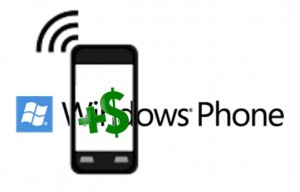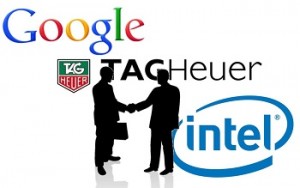Windows 10 to bring Host Card Emulation to Windows Phone
Windows Phone users have had very limited options when it comes to mobile payments. One of the few services that were available to these users, Softcard, was recently shut down after its acquisition by Google. With the closure of Softcard, many Windows Phone users have been pushed out of the mobile commerce space. That may change soon, however, as Windows 10 will be coming to the platform. The latest version of the mobile operating system will feature Host Card Emulation.
Software architecture offers a way to support mobile payments on Windows Phone
Host Card Emulation is a type of software architecture that is meant to provide virtual representation for various types of cards, such as credit and debit cards. This serves as a way to support mobile transactions made on a device, such as a smartphone or tablet. Using Host Card Emulation, devices do not need to have a secure SIM card solution and consumers do not need to use a specialized application in order to make mobile payments.
NFC-enabled Windows Phones may be able to make mobile payments in the near future
 Though Windows 10 will feature Host Card Emulation, those wishing to participate in mobile commerce on Windows Phones will have to have an NFC-enabled mobile device. NFC technology allows for digital information to be sent over short distances and this technology has become the backbone for most mobile payments platforms, which has lead to the increased availability of NFC-enabled mobile devices. Many Windows Phones have NFC capabilities, but older devices may not be equipped with NFC technology.
Though Windows 10 will feature Host Card Emulation, those wishing to participate in mobile commerce on Windows Phones will have to have an NFC-enabled mobile device. NFC technology allows for digital information to be sent over short distances and this technology has become the backbone for most mobile payments platforms, which has lead to the increased availability of NFC-enabled mobile devices. Many Windows Phones have NFC capabilities, but older devices may not be equipped with NFC technology.
Microsoft could attract more people to Windows Phone if it supports mobile commerce more aggressively
Windows Phone may not be the most popular mobile device in the world, but there are a significant number of people with these devices. These consumers have expressed interest in participating in mobile commerce, but they have had limited support for this interest. Microsoft may be able to revitalize favor for its mobile devices if it can manage to provide support for mobile payments.
These companies have banded together to be able to launch luxury wearables before the year is done.
The Baselworld Watch and Jewellery Show in Basel, Switzerland was hyped with announcements about wearable technology, such as the luxury smartwatch that is expected to result from a new partnership among Google, Intel, and the TAG Heuer Swiss watch-making company.
The goal of the companies is to create a device that is both practical to the wearer, as well as luxurious.
The CEO of TAG Heuer, Jean-Claude Biver, said that “Silicon Valley is Switzerland, Switzerland is Silicon Valley.” He pointed out that the device that the partners would be designing would be “both luxurious, and seamlessly connected to its wearer’s daily life.” He closed his announcement with a ceremonial slicing into an 80+ pound wheel of cheese from his own farm.
Biver’s statement showed that the smartwatch is the latest component of watch-making innovation.
 He explained that by bringing together the technology of Silicon Valley and the watch-making of Switzerland, it is a “marriage” of innovation and credibility. He expressed that “Our collaboration provides a rich host of synergies, forming a win-win partnership, and the potential for our three companies is enormous.”
He explained that by bringing together the technology of Silicon Valley and the watch-making of Switzerland, it is a “marriage” of innovation and credibility. He expressed that “Our collaboration provides a rich host of synergies, forming a win-win partnership, and the potential for our three companies is enormous.”
The companies have yet to name the wearable technology device that they intend to launch, but they do know that a chipset designed by Intel will be powering it, it will operate on Android Wear (the modified version of the standard mobile operating system from Google), and TAG Heuer will be designing the actual watch that will be worn by the owner. The availability and pricing of these wearables was also not revealed, but Biver did state that it could be launched anywhere between October and December 2015.
While TAG Heuer will be designing the watch, because of the smartwatch components of the device and as a result of the international method of assembly and manufacturing, the smartwatch that these companies will be producing will not have an actual “Swiss-made” timepiece certification. That said, it will be enhancing the early entry of Google and Intel into the very promising wearable technology marketplace.
 Though Windows 10 will feature Host Card Emulation, those wishing to participate in mobile commerce on Windows Phones will have to have an NFC-enabled mobile device. NFC technology allows for digital information to be sent over short distances and this technology has become the backbone for most mobile payments platforms, which has lead to the increased availability of NFC-enabled mobile devices. Many Windows Phones have NFC capabilities, but older devices may not be equipped with NFC technology.
Though Windows 10 will feature Host Card Emulation, those wishing to participate in mobile commerce on Windows Phones will have to have an NFC-enabled mobile device. NFC technology allows for digital information to be sent over short distances and this technology has become the backbone for most mobile payments platforms, which has lead to the increased availability of NFC-enabled mobile devices. Many Windows Phones have NFC capabilities, but older devices may not be equipped with NFC technology.
 He explained that by bringing together the technology of Silicon Valley and the watch-making of Switzerland, it is a “marriage” of innovation and credibility. He expressed that “Our collaboration provides a rich host of synergies, forming a win-win partnership, and the potential for our three companies is enormous.”
He explained that by bringing together the technology of Silicon Valley and the watch-making of Switzerland, it is a “marriage” of innovation and credibility. He expressed that “Our collaboration provides a rich host of synergies, forming a win-win partnership, and the potential for our three companies is enormous.”